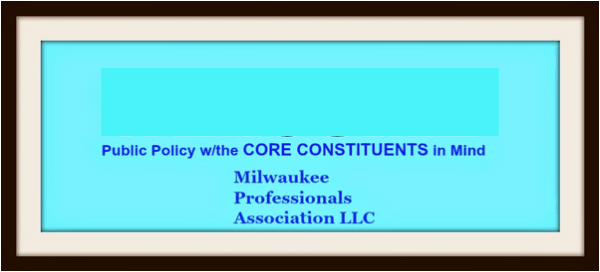September 26, 2020
MILWAUKEE || Milwaukee Professionals Association LLC/MPA-LLC and CITY/COUNTY-WIDE MILWAUKEE FACEBOOK based in Milwaukee, Wisconsin promotes its latest initiative - MOVE THE NEEDLE FOR EQUITY INCLUSION - for public policy advocacy with a slogan of "IT'S PERSONAL".
Re-defining, Re-branding, and Un-trapping Milwaukeeans of Concentrated Poverty – replacing it with a BOTTOM-UP Recovery for a NEW Economic Class that is self-sustaining in quality of life and economic development issues.
<==========================================>
It's PERSONAL is the slogan for our main website - MPA PUBLIC REVIEW -mpapublicpolicyreview.blogspot.com and our Facebook - CITY/COUNTY-WIDE FACEBOOK - https://www.facebook.com/mary.glass.7587.






